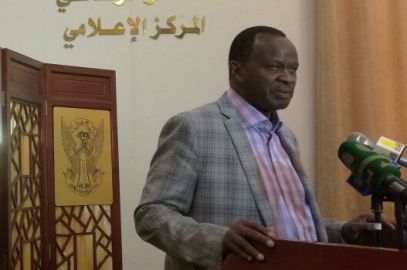Sudan’s Bashir officially dissolves Darfur authority
September 22, 2016 (KHARTOUM) – President Omer al-Bashir issued on Thursday a decree announcing the dissolution of Darfur Regional Authority (DRA) which the government endorsed since last June.

The presidential decree which relieves the executive and legislative bodies of the regional authority was formally announced on Thursday, but the Sudanese cabinet approved it since the 13 June 2016. The presidential decree had been expected since last July.
Former DRA Minister of Reconstruction, Development and Infrastructure and former rebel chief negotiator Tadjadine Bechir Niam, told Sudan Tribune that the parties to the DDPD agreement would discuss work arrangements for the 800 workers of the authority.
Earlier, the Sudanese government said several commissions would be attached to the Sudanese presidency.
Niam added they met on Wednesday with the Presidential Assistant Ibrahim Mahmoud Hamid and proposed to attach to the presidency: reconstruction and development fund, pastoralists and nomadic council besides the voluntary return and social welfare commission, truth, justice and reconciliation commission, land commission and security arrangements commission.
He further said the employees will not lose their jobs because they are detached to the DRA and now will return to their administrations.
The executive body of the regional authority consists of the chairman, 11 ministers and seven commissioners, while the DRA legislative council includes the speaker, two deputies, seven heads of committees and 67 members.
In July, DRA former chairman Tijani Sissi said satisfied with the performance of the authority, saying several items of the DDPD have been implemented including the establishment of services and development projects despite of the security challenges and tribal conflicts.
Holdout rebel groups minimize the RDA achievements pointing to the insecurity and landownership saying they remain major challenges in the region.
(ST)
